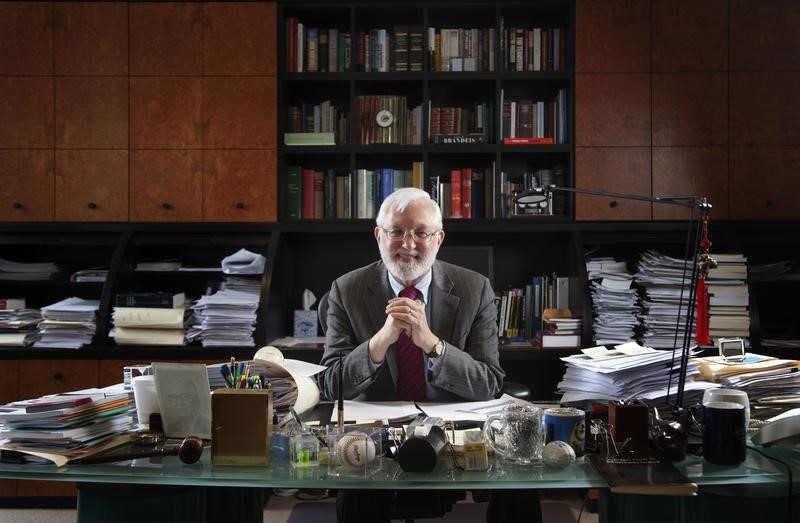By Joseph Ax
NEW YORK (Reuters) - A prominent Manhattan judge who quit a Justice Department advisory commission in protest has changed his mind after the department reversed course and agreed to review a proposal he backed concerning defendants' access to scientific evidence before trial, a spokeswoman said on Friday.
U.S. District Judge Jed Rakoff, a frequent thorn in the side of the Justice Department, rescinded his resignation after what departmental spokeswoman Emily Pierce described as a "friendly conversation" on Thursday with Sally Yates, the acting deputy U.S. attorney general.
"I am grateful to Deputy Attorney General Yates for reconsidering and reversing the department's prior position, so that the commission can now give full consideration to forensic discovery issues and recommendations," Rakoff said in an email.
Rakoff had quit the National Commission on Forensic Science on Wednesday night after the Justice Department determined that the commission was not permitted to make recommendations about changes to discovery, the process by which parties exchange evidence prior to trial.
Saying he "had no choice," Rakoff castigated the department in a letter to the commission for preserving "strategic advantage over a search for the truth." The commission advises the Justice Department on how to use forensic evidence in a fair and consistent manner.
Rakoff, 71, has been an outspoken critic of U.S. authorities for what he views as an inadequate effort to pursue Wall Street for financial crisis-era misdeeds.
The current dispute stemmed from an October proposal by a commission subcommittee, co-chaired by Rakoff, that prosecutors go beyond existing federal criminal rules and provide defendants with additional details about scientific expert witnesses' data and methodology in preparation for trial.
The recommendation, according to Rakoff, would essentially require prosecutors to follow the more stringent standards that currently govern civil lawsuits.
Yates, however, said the commission's duties did not extend to discovery matters, according to Rakoff's letter.

On Thursday, Yates told Rakoff she would welcome an opportunity to receive a copy of the subcommittee's proposal, though she said the department might ultimately disagree with the recommendations, according to Pierce, the spokeswoman.